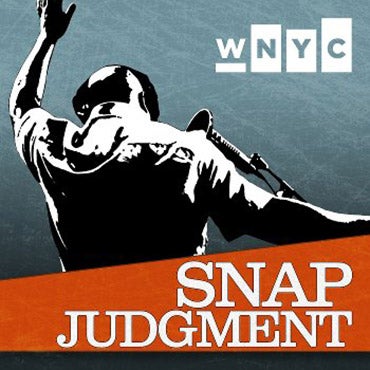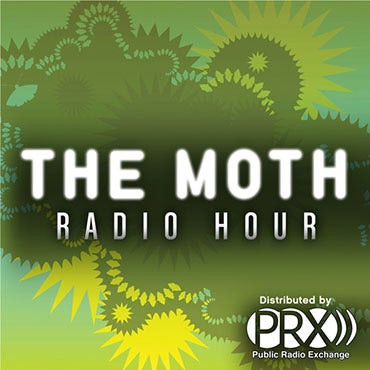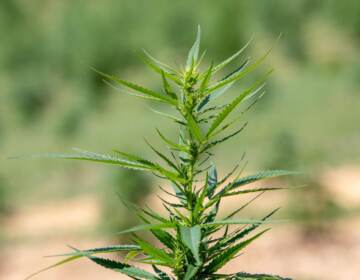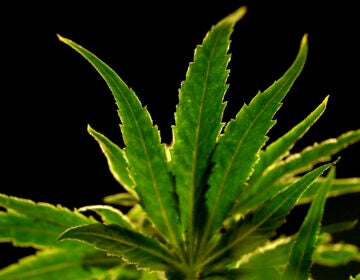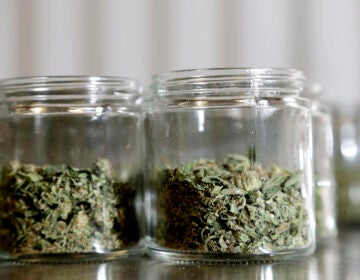What to know about the New Jersey law that regulates the manufacturing and sale of Delta-8 products
Intoxicating hemp, known as Delta-8 tetrahydrocannabinol, is now regulated in New Jersey, and sales to minors are banned.
Listen 1:12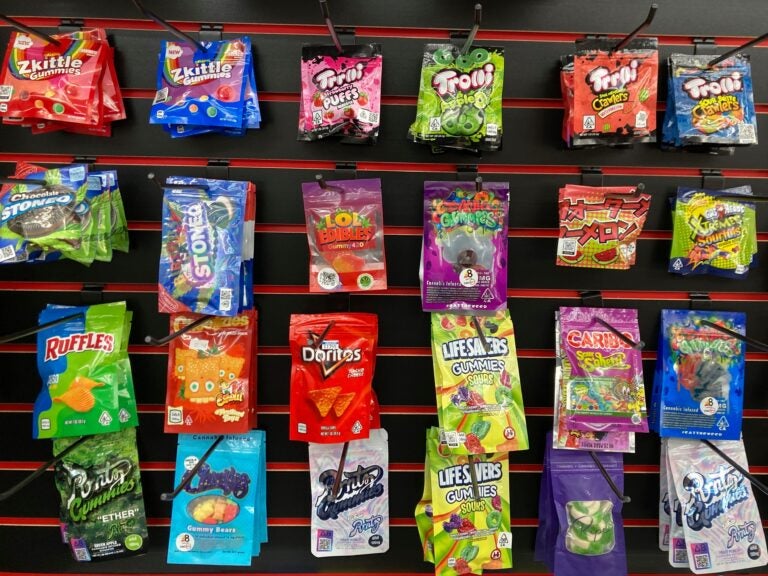
FILE - Products advertised as containing synthetically derived delta-8 THC are offered for sale at a smoke shop in north Seattle on Feb. 25, 2022. (AP Photo/Gene Johnson, File)
From Camden and Cherry Hill to Trenton and the Jersey Shore, what about life in New Jersey do you want WHYY News to cover? Let us know.
Last week, New Jersey Gov. Phil Murphy signed a bill into law that will regulate the manufacturing and sale of intoxicating Delta-8 tetrahydrocannabinol hemp products and beverages that have been sold in convenience stores and gas stations for years.
What is intoxicating hemp?
The law defines intoxicating hemp as any product cultivated, derived or manufactured from hemp regulated pursuant to the Agricultural Improvement Act of 2018, that has a concentration of total THC greater than 0.5 milligrams per serving, or 2.5 milligrams per package.
Due to a loophole in federal and state law, many businesses have been selling gummies and beverages that contain Delta-8 THC.
Delta-8, which is considered a cannabis “cousin” to traditional marijuana, is sold in dispensaries in the Garden State. These products can have the same psychoactive effects as marijuana.
Sen. Paul Moriarty, who represents parts of Atlantic, Camden and Gloucester counties, was the lead sponsor of the legislation. He said up until now anybody, including a child, could walk into a store and buy one of these products “even though they can have similar effects as marijuana, they may contain harmful chemicals, they may contain other contaminants, and they’re often sold without appropriate testing or labeling.”
The dangers of Delta-8.
Bruce Ruck, the managing director at the New Jersey Poison Control Center at the Rutgers University New Jersey Medical School, said it’s important to regulate Delta-8 because it can pose a serious risk.
“We’ve had both children and adults that have developed side effects from these products, we’ve seen people develop confusion, hallucinations,” he said. “We’ve had numerous people that have had to be admitted to hospitals.”
He said this year, the poison control center recorded about 16 cases of individuals who suffered side effects from consuming Delta-8 products. Last year, there were approximately 45 cases.
He said it makes sense to limit the sale of intoxicating hemp products to dispensaries.
“It will definitely decrease the number of young children that get into it, it will decrease the number of people who buy it, who don’t realize what they’re buying,” Ruck said.
Moriarty said a few years ago, a 14-year-old child in Gloucester County ate a whole packet of Delta-8 gummies, wandered off into the woods and began having an out-of-body experience.
“He knew that he was there, but he couldn’t move his arms,” Moriarty said. “He was in this area for 11 hours overnight, and they found him after a manhunt. He was blue, in shock and he could have died.”
The Federal Trade Commission and the Food and Drug Administration have also targeted companies who sell Delta-8 products in packaging that resemble common snacks, saying that there have been multiple reports of children unintentionally eating the products and ending up in the hospital.
The FDA sent a warning letter to the Levittown-based Hippy Mood shop for this reason, saying that their products like “Frutti Rocks Delta-8 Cereal” and “Doweedos Delta-8 Edible Chips” violate federal commerce law.
“I’ve seen many of these products that are in packaging that make it look just like candy, some of them even steal the logos and brand designs of some well-known candy makers,” he said.
When does the new Delta-8 hemp rules take effect?
Effectively immediately, Delta-8 products cannot be sold to anyone under the age of 21, and by the second week in October they must be removed from all store shelves, and be placed under the regulatory purview of the Cannabis Regulatory Commission (CRC). The commission will test and regulate the products the way they do with other cannabis products sold in dispensaries.
Where will Delta-8 intoxicating hemp be sold now?
Delta-8 products will only be available at approved dispensaries licensed by the CRC.
Sellers will need a license from the CRC and will have to comply with the CRC’s rules and regulations concerning licensing, testing, selling and packaging.
The new law stipulates the CRC will work with the Division of Alcoholic Beverage Control to adopt separate rules and regulations regarding the sale of intoxicating hemp beverages by liquor stores. These regulations must include provisions concerning packaging, labeling, product testing, and safety standards, permitted THC amounts, and the number of intoxicating hemp beverages that could be sold to a consumer at any given time.
Can Delta-8 products be used for medicinal purposes, like Delta-9 cannabis?
The new law does not address this issue. There is a lack of scientific research and clinical trials pertaining to Delta-8. Many experts agree more information is needed to identify any potential health benefits related to Delta-8 products.
Unlicensed Sale and Penalties
The new law establishes penalties for an owner or operator of a business who sells an intoxicating hemp product in violation of the regulations.
- For a first offense, a fine of up to $100.
- For a second offense, a fine of up to $1,000.
- For a third offense, a fine of up to $10,000.
The law stipulates each product sold in violation of the established regulations will constitute an additional separate and distinct offense.
The new law also outlaws the sale or distribution of any product containing synthetic THC, which is a laboratory-made substance not derived from the natural cannabis plant.

Show your support for local public media
WHYY is your source for fact-based, in-depth journalism and information. As a nonprofit organization, we rely on financial support from readers like you. Please give today.
